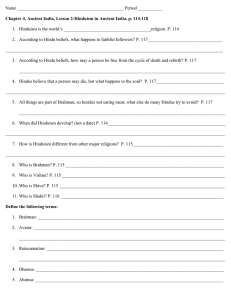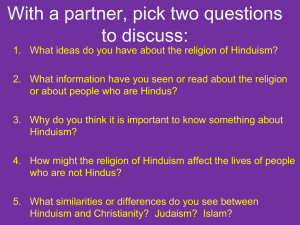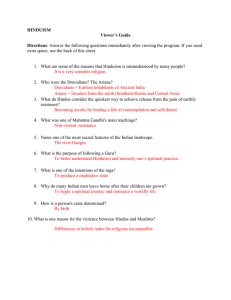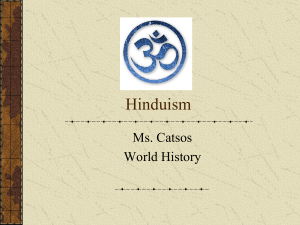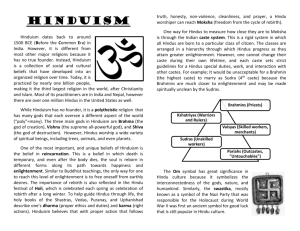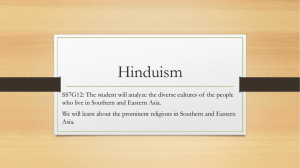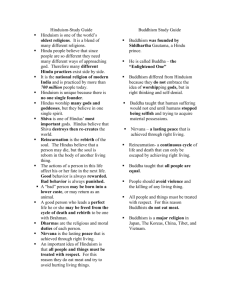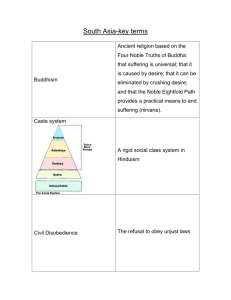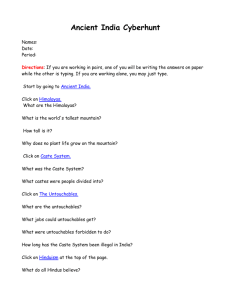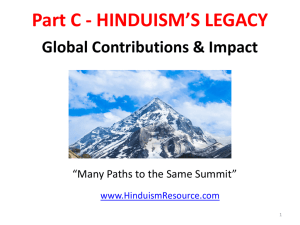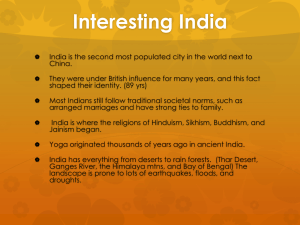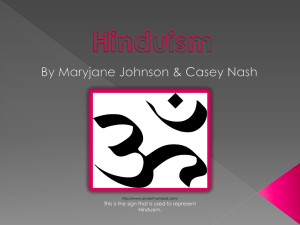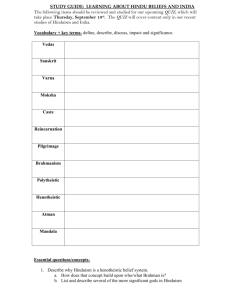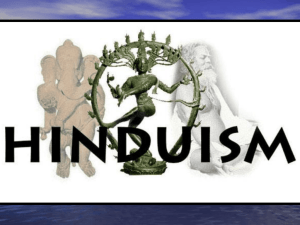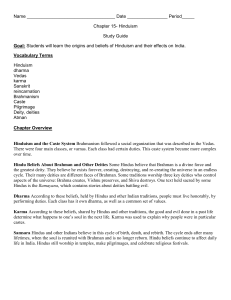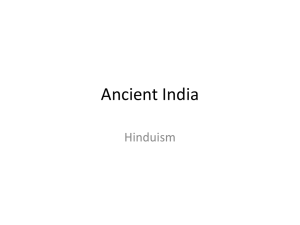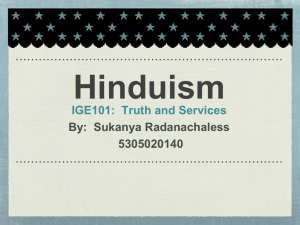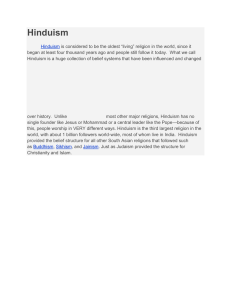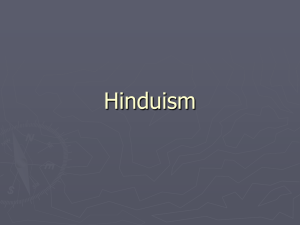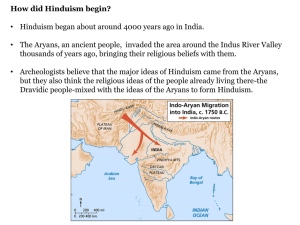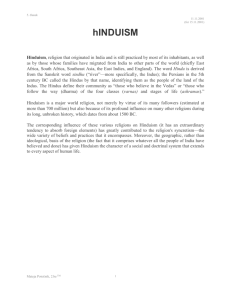World Religions-Hinduism - Ten Days Mission Experience
advertisement
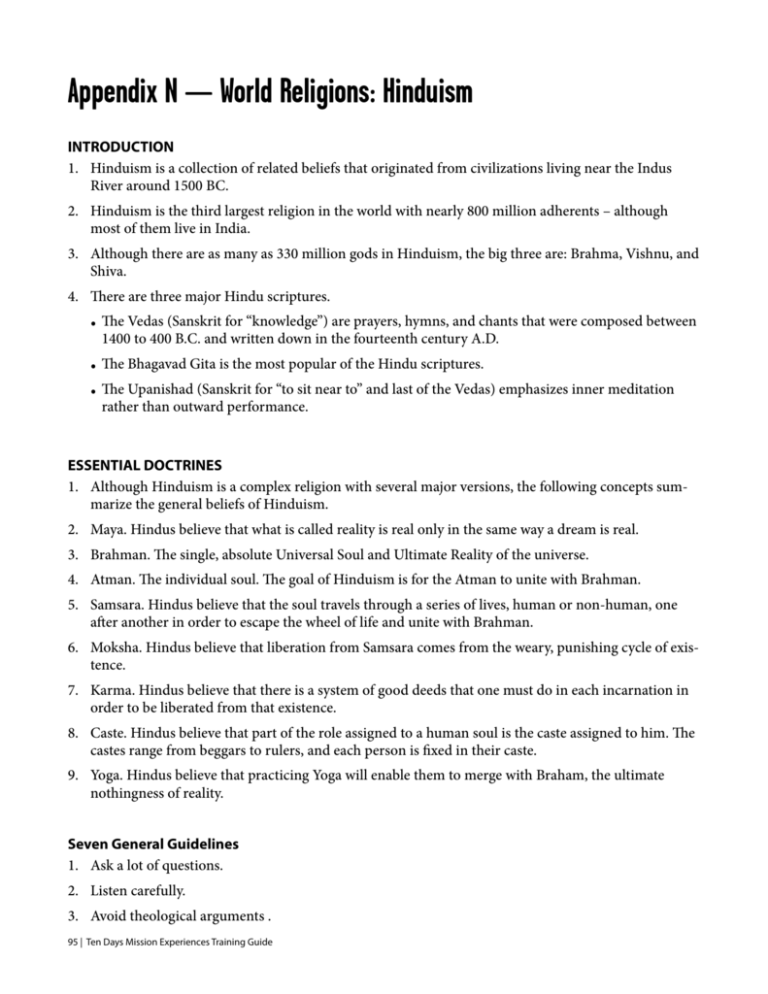
Appendix N — World Religions: Hinduism INTRODUCTION 1. Hinduism is a collection of related beliefs that originated from civilizations living near the Indus River around 1500 BC. 2. Hinduism is the third largest religion in the world with nearly 800 million adherents – although most of them live in India. 3. Although there are as many as 330 million gods in Hinduism, the big three are: Brahma, Vishnu, and Shiva. 4. ere are three major Hindu scriptures. • e Vedas (Sanskrit for “knowledge”) are prayers, hymns, and chants that were composed between 1400 to 400 B.C. and written down in the fourteenth century A.D. • e Bhagavad Gita is the most popular of the Hindu scriptures. • e Upanishad (Sanskrit for “to sit near to” and last of the Vedas) emphasizes inner meditation rather than outward performance. ESSENTIAL DOCTRINES 1. Although Hinduism is a complex religion with several major versions, the following concepts summarize the general beliefs of Hinduism. 2. Maya. Hindus believe that what is called reality is real only in the same way a dream is real. 3. Brahman. e single, absolute Universal Soul and Ultimate Reality of the universe. 4. Atman. e individual soul. e goal of Hinduism is for the Atman to unite with Brahman. 5. Samsara. Hindus believe that the soul travels through a series of lives, human or non-human, one aer another in order to escape the wheel of life and unite with Brahman. 6. Moksha. Hindus believe that liberation from Samsara comes from the weary, punishing cycle of existence. 7. Karma. Hindus believe that there is a system of good deeds that one must do in each incarnation in order to be liberated from that existence. 8. Caste. Hindus believe that part of the role assigned to a human soul is the caste assigned to him. e castes range from beggars to rulers, and each person is fixed in their caste. 9. Yoga. Hindus believe that practicing Yoga will enable them to merge with Braham, the ultimate nothingness of reality. Seven General Guidelines 1. Ask a lot of questions. 2. Listen carefully. 3. Avoid theological arguments . 95 | Ten Days Mission Experiences Training Guide 4. Use personal stories about sin, forgiveness, and the love of God. 5. Be patient and pray for them. 6. Always aim for the heart, and not just the mind. 7. Trust the Holy Spirit to touch their heart with God’s Word. Specific Guidelines for Witnessing to a Hindu 1. Avoid desecrating animals in front of them. 2. Hindus believe that the god Vishnu was incarnated into a human being. Tell them about the real incarnation of God in the person of Christ. 3. Clarify your use of the term “born again” – for Hindus it refers to reincarnation. Ten Days Mission Experiences Training Guide | 96
